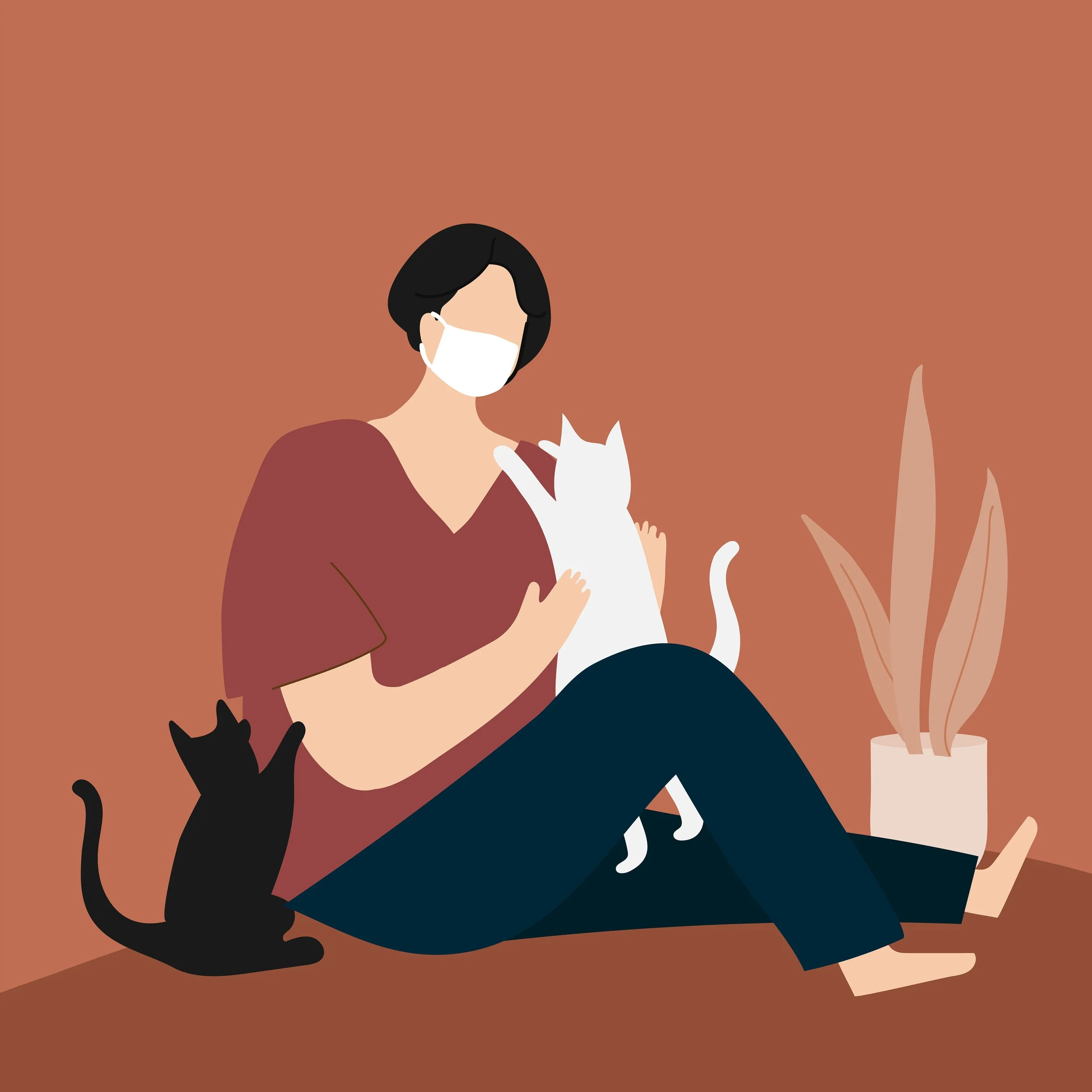What is Depression?
In this article:
Excerpts from Understanding Depression published by the British Psychological Society in October of 2020
Rather than defined as an illness, it is more useful to understand depression as an individual and complex human experience
If you are experiencing symptoms of depression, you are not alone. You also do not need to fight depression on your own. There are many avenues for healing such as mental health treatment, the support of friends and family, leaning into faith communities, attending to physical health and engagement in meaningful activity
Am I sad or depressed? How can I tell?
Many symptoms of depression are a normal and expected part of our emotional experiences in life. Everyone, at some point, experiences sadness, frustration or irritability, emotional fatigue, lack of interest or motivation, and periods of tearfulness or crying. It’s when many of these symptoms are experienced consistently over specific periods of time is when a diagnosis of depression may be present.
Clinically speaking, depression is a mood disorder that involves a severe despondency and dejection that is followed by feelings of hopelessness and inadequacy. Clinical depression can be described as feelings of sadness that persist for an extended period of time that impacts day-to-day activities.
But we use the phrase “feeling depressed” often. This communicates experiences of emotional pain and struggle that do not always align with a clinical definition of depression.
Professor Paul Gilbert OBE, a clinical psychologist in the U.K. and founder of Compassion Focused Therapy, writes “depression is not a word that describes just one state of mind, but refers to a whole array of different feelings and thoughts that people experience in different ways in different situations.”
There are commonalities in how people experience depression such as loss of feelings of pleasure, having a pessimistic view of the future, feeling as if life is too harsh and difficult, often with sleep difficulties, feelings of tiredness, fatigue and/ or in some way feeling ‘ill’.
Prof. Gilbert additionally discusses a ‘sense of dread’ that is commonly expressed by those experiencing depression. Prof. Gilbert astutely points out that the experience of ‘dread’ is not a word that is used in medical literature, “but it’s a useful description for how a depressed person feels in struggling to cope with the challenges and tasks of living.” It is also important to note that along with the aforementioned experiences, feelings of anxiety or withdrawal, irritability, anger and aggression can all be indicators of depression.
Depression is not just ‘in our heads’, as beliefs and imaginations, Prof. Gilbert writes, and recent research has shown changes in parts of our brain, in our immune, cardiovascular and digestive systems. There is evidence that our diets may contribute to depression as well as increasing evidence is showing that the bacteria that live in our gut can have a major impact on our mood.
Paul Raymond Gilbert OBE is a British clinical psychologist. Gilbert is the founder of compassion focused therapy, compassionate mind training and author of books such as The Compassionate Mind: A New Approach to Life's Challenges and Overcoming Depression.
In the report Understanding Depression, Prof. Gilbert states that “depression emerges from complex biopsychosocial interactions and that we must not ignore the body or social and economic contexts” when discussing depression and it’s origins. It is very important for those experiencing depression to also meet with their primary care physician to be assessed for medical conditions that can negatively impact mood such as thyroid problems, hormone imbalances and diabetes to name a few.
When seeking mental health treatment for depression, experiences such as chronic pain, sexual difficulties, problems in relationships, difficulties in maintaining consistent employment, cultural factors and environmental trauma are all important components that should be assessed.
Viewed from afar, symptoms of depression might be misunderstood as someone not trying hard enough, not caring or possibly as someone who is described as difficult to be around and irritable. When people are experiencing symptoms of depression, often they want to feel loved, valued and a sense of connection to others and/or a larger purpose.
The COVID-19 pandemic has exacerbated these symptoms for a lot of people. We are a highly social interdependent species. From childhood to adulthood, isolation from others is typically the one of highest forms of punishment. Worldwide health anxiety coupled with isolation from friends, family, and employment has taken a toll on the mental health and wellbeing of many communities. It may seem odd initially, but it should not come as a surprise that many of us have bonded with others through the sharing of our experiences of life during a pandemic.
If you are experiencing symptoms of depression, you are not alone. This statement is not meant to trivialize your individual struggles and experiences. The pandemic is just one external factor that has contributed to depression, but it did not create it. Vacillating experiences of depression, unfortunately, are a reality that many people live through.
You also do not need to fight depression on your own. There are many avenues for healing. Mental health care which can include individual therapy, psychiatric treatment, group therapy or mental health treatment programs is one avenue. The support of friends and family, leaning into faith communities, attending to physical health and engagement in meaningful activity are many other components that can lead someone out of the depths of depression.
Our own inner dialogue can keep us stuck in depressive states. Spiraling thoughts of negativity and self-judgment can prevent us from acknowledging the difficult emotional states we find ourselves in. Mental health providers, Prof. Gilbert reminds us, play a major role to “to soften the chains of self- criticism, self-blame and shame”. Part of healing from depression is through developing compassion for oneself and others.
DISCLAIMER: All information included is for educational purposes only. It is not meant to be used for self-diagnosis or to instruct anyone on how to proceed with their mental healthcare. A mental health diagnosis can only be identified by a trained professional that facilitates a proper assessment. Please speak to your healthcare professionals prior to making any changes.













